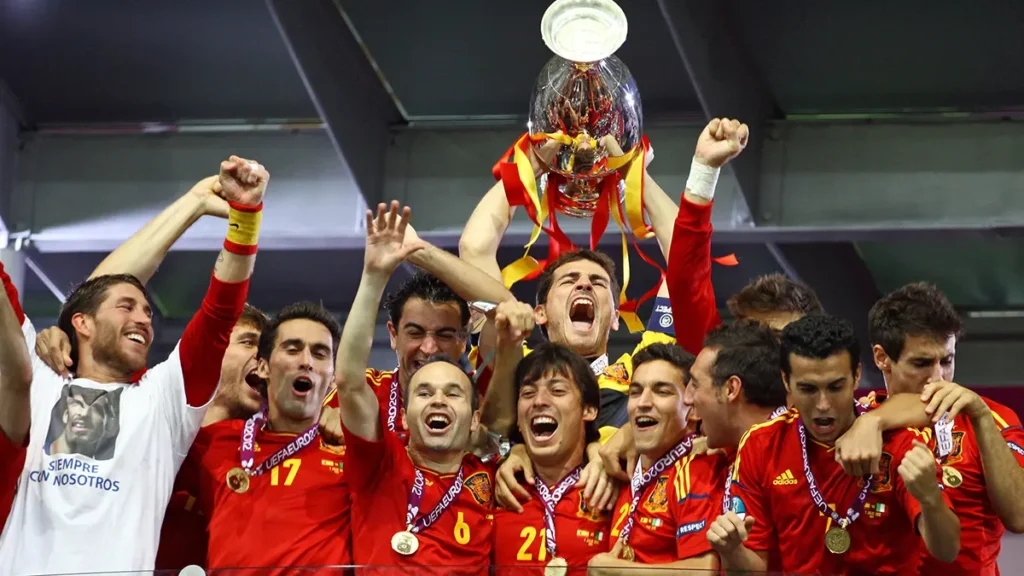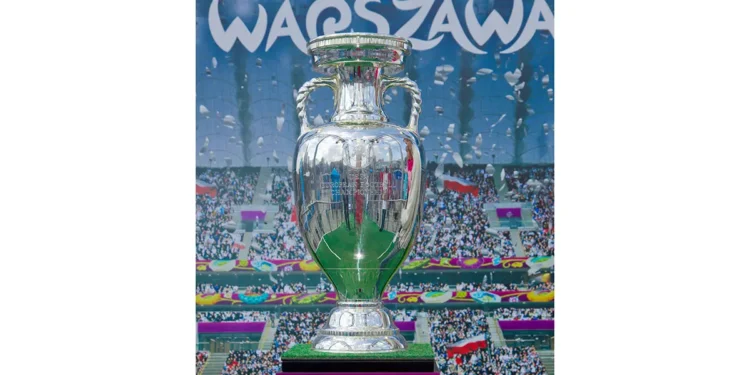The 17th tournament will add to the already fascinating and decorated history of the European Championships laced with drama and spectacle.
Inception and Early Years
Since its inception in 1960, the Euros has become one of the world’s most prestigious and widely viewed sporting events, second only to the World Cup in the realm of international football.
The idea for a pan-European football tournament was first proposed by the French Football Federation’s secretary-general, Henri Delaunay, in 1927; but it was not until 1958 – three years after Delaunay’s death – that the competition was inaugurated, thus the trophy awarded to the winners is named after its creator in his honour.
Southern and Eastern European Dominance
The early tournaments were dominated by the strength of Southern and Eastern European football at the time. In 1960, the Soviet Union triumphed in France, 1964 saw Spain hosting and winning – highlighting the importance of home advantage – and Italy did the same in 1968.
West Germany had clinical striker Gerd Muller to thank in 1972, as he netted a brace in the semi-final win over hosts Belgium, and again in the 3-0 destruction of the Soviet Union in the final; though Czechoslovakia beat the title holders on penalties in the 1976 final after a 2-2 draw – the first time such a method was used in the competition.
The Germans were then to get their own back by beating the Czechs in the groups in 1980 as they advanced to the final in Italy, beating Belgium with two goals from Horst Hrubresch.

France’s Golden Era
Michel Platini inspired France in 1984 as the three-time Ballon D’Or winner scored in every game and nine in total, with Les Bleus winning all of their five matches, culminating in a 2-0 win over Spain in the Paris final.
Four years later, France failed to even qualify and defend their win and it was thought that West Germany would become the fourth hosts to win the competition. However, their rivals the Netherlands would knock them out in the Hamburg semi-final, before Marco van Basten’s stunner helped them see off the Soviet Union in the final.
The 1988 competition is still the only major tournament without a goalless draw, any extra-time or penalties; nor was a red card produced.
Denmark caused something of an upset in 1992, beating hot favourites Germany in the final in Gothenburg – the Danes had only qualified due to Yugoslavia’s dire political situation seeing them unable to take part.
England’s Near Miss
England hosted in 1996, with a significant expansion to 16 teams and the introduction of the golden goal rule, where the first team to score in extra-time knockout matches would win the tie.
The Three Lions couldn’t capitalise on a fervent home atmosphere, losing on penalties to Germany, who went on to win by golden goal against Czech Republic.
The turn of the millennium saw France’s victory in 2000 achieve a remarkable international double having won the 1998 FIFA World Cup; while Greece recorded a shock in 2004 as 80/1 outsiders, defeating Portugal in both the tournament’s first and last game – 1-0 each time.
Spain’s Dominance and Portugal’s Redemption
Spain then took over, completing the first-ever back-to-back tournament wins in 2008 and 2012, and Portugal finally put to rest 12-year-old demons, gaining their debut tournament success in France 2016, despite losing the talismanic Cristiano Ronaldo – stretchered off just 25 minutes into the final – beating the host nation with Eder scoring the only goal in extra-time.
The 2020 showcase – played in 2021 – was hosted across Europe and England found themselves in the Wembley final. However, they couldn’t take advantage of a fervent Wembley crowd and lost 3-2 on penalties to Italy.
On the eve of making more history of the European Championships in 2024 what will this tournament bring?









